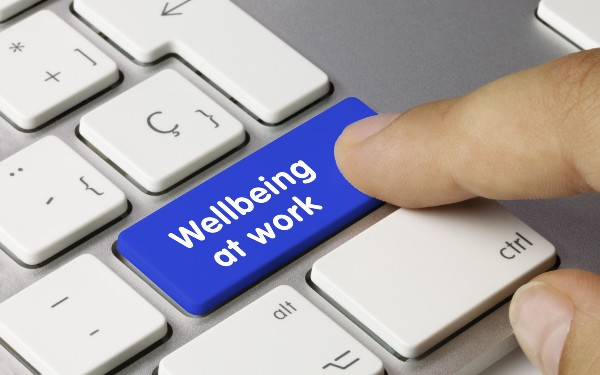
By Lauryn Pierro and Rob Preston
The mental health of two-thirds of social workers has deteriorated recently because of work, a survey has found.
Almost half of respondents said they were considering leaving the profession as a result of their experiences in the past 18 months, found the survey of 824 Social Workers Union members, the results of which were published yesterday.
Commissioned by the union, the British Association of Social Workers (BASW) and talk radio station LBC, the research is the latest of several to highlight the negative impact on social workers’ wellbeing of practising through the pandemic.
More on Covid’s impact on social workers
- Social workers’ wellbeing and quality of working life have decreased over course of pandemic, study finds
- Three-quarters of social workers emotionally and mentally exhausted on back of Covid-19, finds survey
- Growing majority of children’s social workers feeling stressed and overworked, finds DfE study
When asked how their jobs had affected their mental health recently, the survey found that 53% said it had got worse, and a further 13% said it had ‘collapsed’. One third reported experiencing emotional responses to their work, such as crying or feeling unwell, at least fortnightly.
This was against a backdrop of caseloads that 34% said were “not at all” appropriate or manageable, and a further 25% said were partially unmanageable.
Half considering quitting social work
The survey also found that 44% of respondents were considering leaving their jobs as a result of their experiences in the past 18 months.
Respondents to the survey, carried out by social enterprise Campaign Collective, also highlighted issues with how local authorities were responding to children at risk.
Almost half – likely to represent most respondents working in children’s services – said they had raised concerns about a child in the past 18 months where they believed appropriate action was not then taken.
John McGowan, general secretary of the Social Workers Union, said: “This recent member survey has highlighted what the reality of being a social worker in 2022 is and reflects the pressures our members are presently under.”
Social workers ‘exhausted’ by Covid
Speaking to Community Care last week, before the publication of the survey, sector bodies highlighted the impact of practising under the pandemic on social workers’ mental health.
BASW said the spread of the Omicron variant had related “enormous” increased pressures on already “emotionally and mentally exhausted” social workers.
And the association said social workers had reported a lack of “empathy and support in the working environment”, which made them feel even more stressed.
“[This] is leading to social workers continuing to work when they are ill, feeling unable to take time off because of the pressures on the team and service and the responsibility they feel towards children, people and families,” a spokesperson said.
They said some practitioners sick with the Omicron variant had reported “feeling the pressure to return to work too quickly, knowing they are not fully recovered but conscious of the situation on colleagues and people and families working with”.
Mental health toll from remote working
UNISON national officer for social work Gill Archer said Covid was “still taking a massive toll” on social workers’ mental health, with some feeling isolated by continued home working and reporting that they missed having peer support.
“When you’ve got more complex cases, some are saying to us that they are missing a sense of shared direction,” she said.
“You have got the blurring of home and work with no time to process tragic cases because there is no journey home.”
A senior social worker from Northamptonshire said remote working was particularly challenging for newly qualified staff, who could not benefit from informal supervision from peers or go on practice visits with colleagues as easily.
‘A heck of a time to qualify’
“We are looking at ways that we can minimise burnout for newly qualified workers so we don’t lose people at the first hurdle. It is a heck of a time to qualify,” they said.
The practitioner said social workers were anxious around whether they were able to provide the best service or to families or to scrutinise them as much as they would like due to some continuing restrictions on face-to-face working.
Rachael Wardell, chair of the Association of Directors of Children’s Services’ workforce development policy committee, said: “Certainly everyone is very tired, everyone has worked extremely hard, is still working extremely hard and there has been very little respite.
“Some individuals have been personally affected by a bereavement in their immediate family, by serious illness themselves, by long Covid in some cases. As a profession, we have lost staff members, and in the teams where they have lost colleagues that has had a very significant impact.”
She said social workers across the country had been “magnificent rising to the challenge” of working through the pandemic.
Social workers ‘unsung heroes’
In response to the survey, a Department for Education spokesperson said: “Social workers are often our unsung heroes, doing their best in very difficult jobs, and their welfare and wellbeing is of huge importance. Every social worker should benefit from good professional development, and we are also investing in fast-track training and recruitment programmes targeted at high-quality graduates.
“Local authorities have access to a number of mental health services to support their social workers, and we also organise peer-to-peer support sessions for social workers to help them share best practice and the challenges they face.
“We recognise the pressure on children’s services, which is why we are providing councils with £4.8 billion in new grant funding to help maintain vital frontline services, including children’s social care.”
The funding is a reference to money that will be provided to councils from 2022-25 as part of the government’s spending review settlement. However, on a like for like basis, council budgets are only expected to rise by a maximum of 1.8% a year in real terms over the period, which is dependent on authorities raising council tax by 2% a year, and the adult social care precept, ring-fenced for adults’ services, by 1% annually.





 Bournemouth, Christchurch and Poole
Bournemouth, Christchurch and Poole  Hampshire County Council
Hampshire County Council  Lincolnshire County Council
Lincolnshire County Council  Norfolk County Council
Norfolk County Council  Northamptonshire Children’s Trust
Northamptonshire Children’s Trust  South Gloucestershire Council
South Gloucestershire Council  Wiltshire Council
Wiltshire Council  Wokingham Borough Council
Wokingham Borough Council  Children and young people with SEND are ‘valued and prioritised’ in Wiltshire, find inspectors
Children and young people with SEND are ‘valued and prioritised’ in Wiltshire, find inspectors  How specialist refugee teams benefit young people and social workers
How specialist refugee teams benefit young people and social workers  Podcast: returning to social work after becoming a first-time parent
Podcast: returning to social work after becoming a first-time parent  Podcast: would you work for an inadequate-rated service?
Podcast: would you work for an inadequate-rated service?  Family help: one local authority’s experience of the model
Family help: one local authority’s experience of the model  Workforce Insights – showcasing a selection of the sector’s top recruiters
Workforce Insights – showcasing a selection of the sector’s top recruiters 

 Facebook
Facebook X
X LinkedIn
LinkedIn Instagram
Instagram
Not a surprise. How many surveys are there saying the same thing? And nothing ever changes. The only answer we are given as social workers is that if we burn out it’s our own failure to implement “self-care”.
Nothing is done , nothing can be done ? , the Social work profession has always been a stressful intense job with little public recognition for the good work we do . We are always portrayed as the people responsible for societies mistakes and crimes. Terrible child murders, Adult abuse are just the tip of the public perception of our service driven by the media who are often at the heals of Social workers for a story. This was prior to the Covid pandemic, now we have the stress of the Pandemic as well as the emotional luggage we carried over prior to Covid. I did not think we needed a survey to recognise what most Social workers are feeling right now, it shows that if one is needed then the people in charge do not and have any idea, or have not bothered to listen to us over many years. Until we have empathy and support from the top down I am afraid Social work is going to bleed out and subsequently society will suffer even more than we are doing now.
I am confused. I read in one article how successful home working has been in containing ill health and that it’s opened up new ways of working with increased self satisfaction and should be embedded in how we work post pandemic. I read in another survey how “resilient” social workers have been in meeting and coping with extra demands. Here I read home working is isolating and reduces the strategies social workers have to cope with stress, newly qualified staff in particular. It’s this knee-jerk confused and confusing messaging which is equally demoralising.
Me to my manager: I really can’t take on another case, I am struggling as it is. My manager: if you are not coping perhaps social work isn’t for you. Year 2016. I was then on my 13th year as a qualified and practicing social worker. Covid has given cover to the likes of my manager to pretend all was lovely before. It wasn’t and it never can be with the managerial mindset that sees posturing and denigration as strengths. But what do I know, I don’t write blogs on how managers are the crucial organisational culture makers and get to bask in the sycophantic affirmation
Very eloquently put , posturing and denigration from the managerial culture , backed up by a variety of sycophantic affirmations… indeed. I did 2003 to 2010 , in children’s services with lots of CP court time ,then until end 2019 in LD , with additional ASC / MCA rota work. Several bullying narcissistic managers in that time frame. You have to use all policy and procedures, health and saftey and union etc and big beast ? them back , for the greater good ,but its not much fun and very far from ideal.